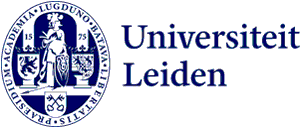
Al Qaeda in the Islamic Maghreb: the comprehensive scope was missing
Sergei Boeke has once again proven that there are more roads than one that lead to Rome with his PhD research into al Qaeda in the Islamic Maghreb. It is both the core point of his conclusions as well as the leitmotiv for his approach. Boeke’s dissertation is comprised of five academic articles that form the building blocks for his foundation. PhD Defense: 16 June.

Boeke is a man with hands-on experience. He has worked for the University for six years, but his experiences have been dominantly shaped by his years working for the navy, in the diplomatic service, and the intelligence service. When he started working for at Leiden University’s Institute of Security and Global Affairs (ISGA) in 2013, his attention quickly turned to Mali. ‘That was a logical direction in 2013, when the initial French military intervention in Mali took place. I speak French and have experience in the military field.’ At the same time, he was teaching cybersecurity governance, a topic that could also have provided some interesting PhD research. ‘The coin flipped to the side of Mali, because I had already made quite some progress on my articles on the subject.’
Combining research with working for the NATO
The practical consideration to use articles as the base of his PhD track proved very useful when he started working as political advisor at the NATO Headquarters Joint Support & Enabling Command (JSEC) in Ulm, South Germany in 2019. ‘I had to fit my research around my work. It’s a very interesting and comprehensive position. The various military staff working at the large NATO headquarters have a civil political advisor (POLAD) attached to them who is in direct contact with the commander in order to advise on political subjects and provide the strategical context in which the armed forces operate.’

Dissertation comprised of five articles
The dissertation is comprised of five articles that have been published in international academic journals. Which each answer part of the core research question: how has al Qaeda evolved in the Islamic Maghreb (AQIM) since the 2012 crisis in Mali, and how have Mali and the international community responded to this? A recurring thread is the difference between terrorism and insurgency. Boeke visited Mali several times and interviewed several people involved. The external PhD candidate was able to pay a lot of attention to primary sources, something that is often lacking in research on terrorism. The first articles made use of letters that had been written by al Qaeda commanders and that had been retrieved during military operations. Media publications from AQIM have also been analysed.
Strict demarcation of definitions
Boeke has chosen for a comprehensive scope. That is not without risks, because it leaves a lot of room for holes in the research. Boeke is aware of this: ‘When you look at micro level, you’re lord and master of your topic – event though questions on representativeness and the applicability of the conclusions will always remain. With a macro focus you need to be able to grasp the geography of the entire topic, so I’m expecting a lot of difficult questions during my defence.’
At the same time, a strict demarcation of definitions is one of the causes of the problems in Mali, concludes the researcher. ‘In the academic community parallel literature has evolved on terrorism and insurgency, even though the lines are definitely less defined in reality than in theory.’ Which is why a comprehensive scope was missing in Mali at the time the problems arose. In 2012, Mali was known as the poster boy for democracy, even though the ingredients for the collapse where already present behind the scenes. The threat was not made visible because of the exclusively quantitative approach that simply focused on ticking the boxes for the visible requirements of democracy. A qualitative approach to threat, that would have exposed the deeply rooted corruption, would have been more helpful here.
Focus too narrow
Even when the fighting had already begun, the focus was often too narrow. Boeke: ‘If you think in the paradigm of terrorism, there are many possible solutions to be found to oppose the threat. Terror groups are usually small, and the counterterrorism policy is often build around the concepts of deradicalisation and countering violent extremism. However, with an insurgency, the insurgents are effectively looking to control an area, and fighters are mobilized rather than radicalized. It also involves larger amounts of fighters, and the elimination of their leaders will have less of an effect. AQIM is most certainly part of the broader al Qaeda organization, but both their fighters as well as their agenda are of a regional nature. It also seems that by applying the terrorism label the option of negotiations is no longer available. If you label an armed group as insurgents or separatists, a peace treaty or cease-fire suddenly become viable options. That should also be possible with terrorists, but it is often excluded by politicians in Western countries. The prevailing consensus is that you can’t negotiate with terrorists. Because they wouldn’t be interested and because we don’t want to legitimize them.’
One of the recommendations made by Boeke is to broaden the scope on how to define these groups and to let go of the paradigm. For instance, in Mali people are more than willing to start a dialogue with AQIM.
Switching focus to Mali
The defence of his dissertation on Thursday means that Boeke will have to switch focus from his current preoccupation with the Ukraine and Brussels to Mali. ‘It will take some effort, because my work is very hectic and dynamic at the moment because of the war in Ukraine. But I’m looking forward to being back in the Netherlands with my family for a while. We haven’t been in the Netherlands for some time and my defence is a nice occasion to see everybody and celebrate my dissertation.’
Text: Margriet van der Zee
